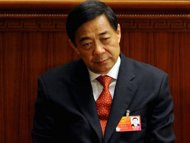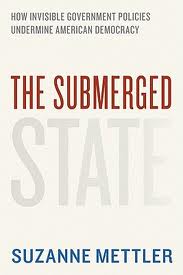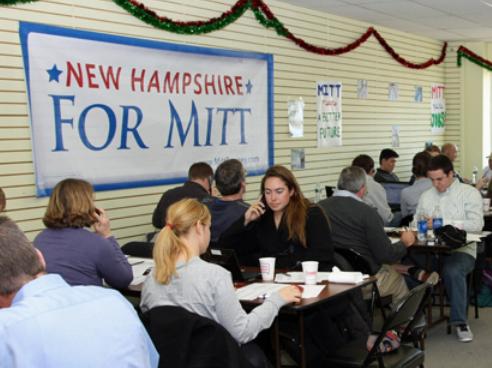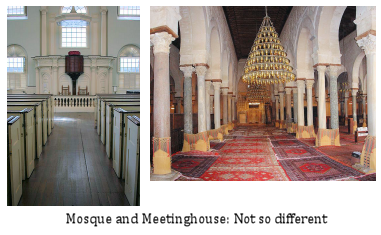
Bo Xilai’s ouster is about Chinese party politics – and fears over his popularity
As the most high profile ouster in the Chinese Communist Party (CCP) since 1989, the departure of Bo Xilai, a high-level Party official, illustrates two matters. First, it demonstrates that the consensus of collective leadership and demand for Party unity remains very strong. But second, it reflects the increasing strain on the Chinese political system and casts doubt on its capacity for change. A bit of background. After 1978, the CCP embarked on a political strategy to consolidate its hold on power that was based on collective leadership. This choice was informed foremost by the necessity to prevent the rise of another Mao-like autocrat; but a second key principle insisted on keeping leadership divisions out of public view. This policy …
Did the German Finance Minister Seriously Just Suggest Greece Postpone Elections?
I didn’t think it was possible, but the situation between the Greeks and the Germans just grew considerably more ridiculous. German finance minister Wolfgang Schäuble said in a radio interview that the Greeks should postpone national elections planned for April and instead adopt a technocratic government that leaves out the country’s major political parties (h/t Tyler Cowen, who correctly files this under ‘Department of Yikes’, and it’s worth noting that the Finns and the Netherlands are also apparently on board with the German plan). Wow. Due to the Eurozone crisis a lot of things which would have seemed unthinkable a few years ago are now plausible, but even by our new 2012 standards this is just insane. Suffice it to …

Book Review: The Submerged State: How Invisible Government Policies are Undermining American Democracy
The Submerged State: Atlantis? No, a slim and highly readable volume in which Suzanne Mettler describes how certain public policies have become highly resistant to reform and damaging to American democracy. By ‘submerged state’ Mettler means a set of indirect government subsidies and benefits whose size and beneficiaries, indeed whose very existence, is largely invisible to the public. Some types of governmental intervention are highly visible: most citizens are aware of them and know something about what they are, how they work and who benefits from them. For instance, most people know about the veterans’ benefits offered by the G.I. Bill. But others are more ‘submerged’, hidden either because they are channelled through private delivery organizations or because they come to …

The seeds of a green spring: young leaders meet in Oxford to debate Pakistan’s future
For three days (February 3-5) Oxford University was the venue for the Pakistan Future Leaders’ Conference (PFLC), attended by some 300 student-delegates hailing from around 50 universities and colleges in the United Kingdom. This major event was organised by Oxford University’s Pakistan Society, in collaboration with the Oxford Union, and the Pakistan societies of Cambridge University and the School of Oriental and African Studies. Such a large gathering of young Pakistanis in Oxford was reflective of an emerging ‘youth moment’ currently setting the course of politics in Pakistan. Cricketer-turned-politician Imran Khan, who is also an Oxonian, has already tapped into this phenomenon. His recent political rallies in Lahore and Karachi attracted exceptionally large crowds of younger people, forcing the country’s …

“Hi, I’m a volunteer with the Mitt Romney campaign, calling you from my computer…”
So Mitt Romney won what the Washington Post calls a “decisive victory” in Florida yesterday, and while the Republican presidential primary isn’t quite over (a majority of the votes still went to his three remaining rivals, donations keep coming in to Newt Gingrich especially), the former Massachusetts governor is now well-positioned to lock up the nomination on “Super Tuesday,” March 6, where people in eleven states cast their votes. If Romney becomes the candidate, a closer look at his current campaign can help us understand how he will fight the general election. In past cycles, most recently of course in 2008, the way candidates fought their primary gave many clues to how they ended up fighting the general election—in terms …

Many Trails to Freedom: Islamic Democracy is not an Oxymoron
“I disapprove of what you say, but I will defend to the death your right to say it.” – Voltaire. Over Christmas I visited Boston and had the occasion to walk the famous freedom trail: 3 miles of sights commemorating American independence. As I walked this hallowed ground I pondered on those fighting for freedom today, in the streets of Cairo, Homs and Tunis. Having met some of these people, I wondered at the suspicion we direct at the Islamic parties now gaining power, as if we forgot our own history. American democracy was born of Puritan principles of self-government, but that did not prevent it from evolving into the (more or less) secular body it is today. Ignoring this …

Gingrich needs an organization (and fast)
Newt Gingrich’s clear come-from-behind victory in the January 21 South Carolina primary has made the Republican Presidential Primary a lot more exciting than it looked after Iowa and New Hampshire. Clearly, many Republicans remain reluctant to embrace Romney. If the opposition coalesce around Gingrich, the not-Romney of the moment, the party is in for a long grind of a primary. One question right now is whether Gingrich has the organization to make the most of his momentum. Florida, January 31, is the first test. Romney has been ahead in the polls there lately, but his support is eroding and as recently as December, Gingrich had a solid lead. The political climate in the sunshine state can be fickle and is …
Federalism in Nigeria: Contextualising Boko Haram and the Fuel Subsidy
When Boko Haram killed nearly 70 civilians over the Christmas holidays, many observers in the Western media were quick to chalk it up to wanton Islamic extremism. The attacks, it was concluded, reflected global jihadist activity. Emphasis was placed on the group’s links to al Qaeda. This narrative is shortsighted. For one, it ignores Christian retaliation just days later, including the bombing of a madrasa that injured seven. More broadly, it decontextualizes the violence. Nearly 500 Nigerians were killed in the northeast in 2011 due to sectarian conflict. Suicide attacks, car bombings, and assassinations-by-machete have been documented throughout the country, Africa’s most populous and the linchpin of Western engagement with the continent. Such killings are not new to Nigeria: religious strife has been a constant for decades, …









